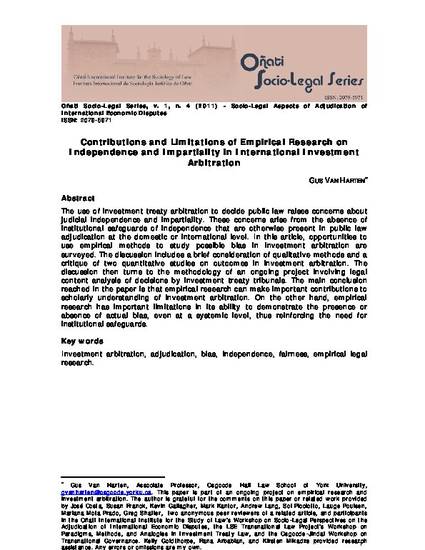
- adjudication,
- bias,
- empirical legal research,
- fairness,
- independence,
- investment arbitration
The use of investment treaty arbitration to decide public law raises concerns about judicial independence and impartiality. These concerns arise from the absence of institutional safeguards of independence that are otherwise present in public law adjudication at the domestic or international level. In this article, opportunities to use empirical methods to study possible bias in investment arbitration are surveyed. The discussion includes a brief consideration of qualitative methods and a critique of two quantitative studies on outcomes in investment arbitration. The discussion then turns to the methodology of an ongoing project involving legal content analysis of decisions by investment treaty tribunals. The main conclusion reached in the paper is that empirical research can make important contributions to scholarly understanding of investment arbitration. On the other hand, empirical research has important limitations in its ability to demonstrate the presence or absence of actual bias, even at a systemic level, thus reinforcing the need for institutional safeguards.

View this research paper on SSRN.